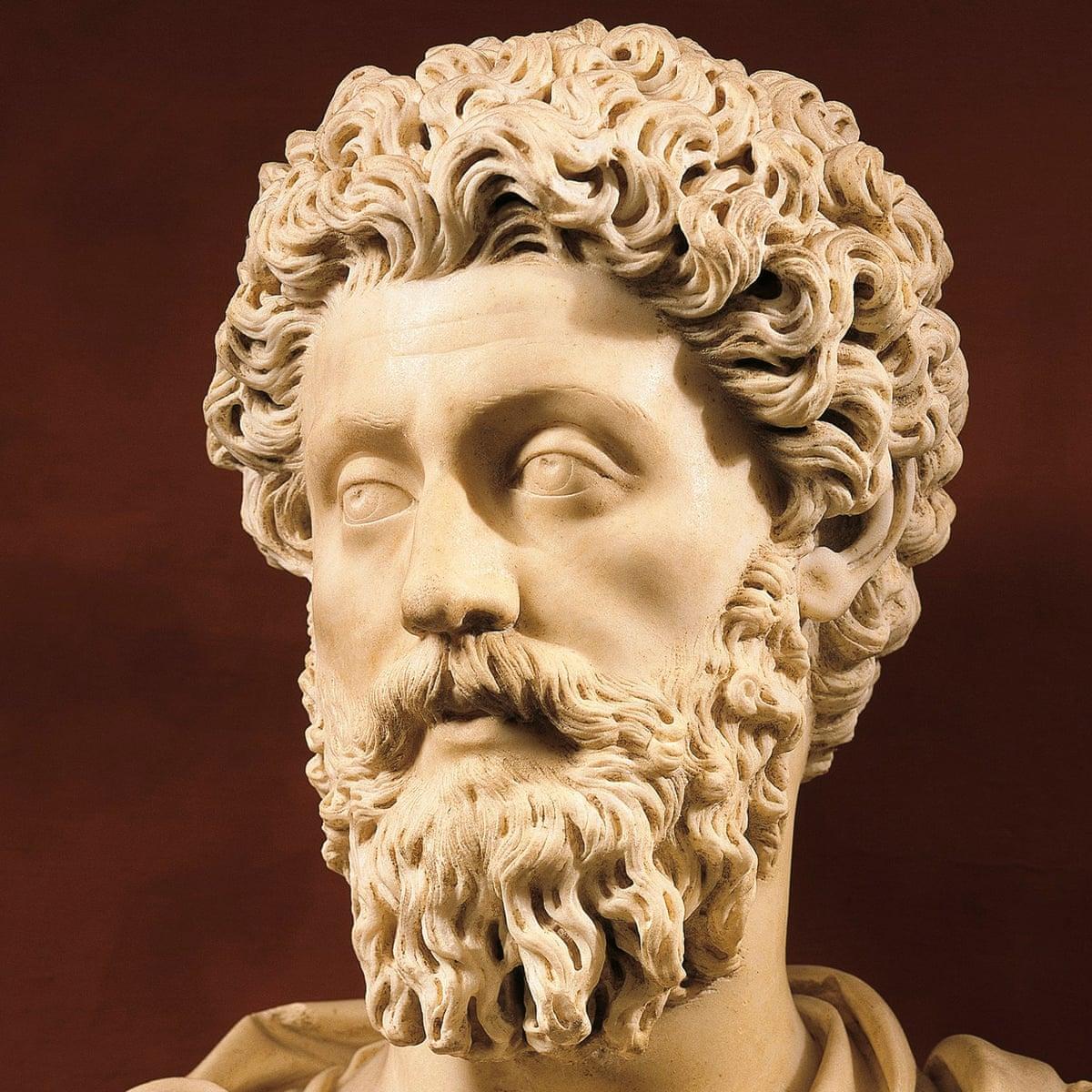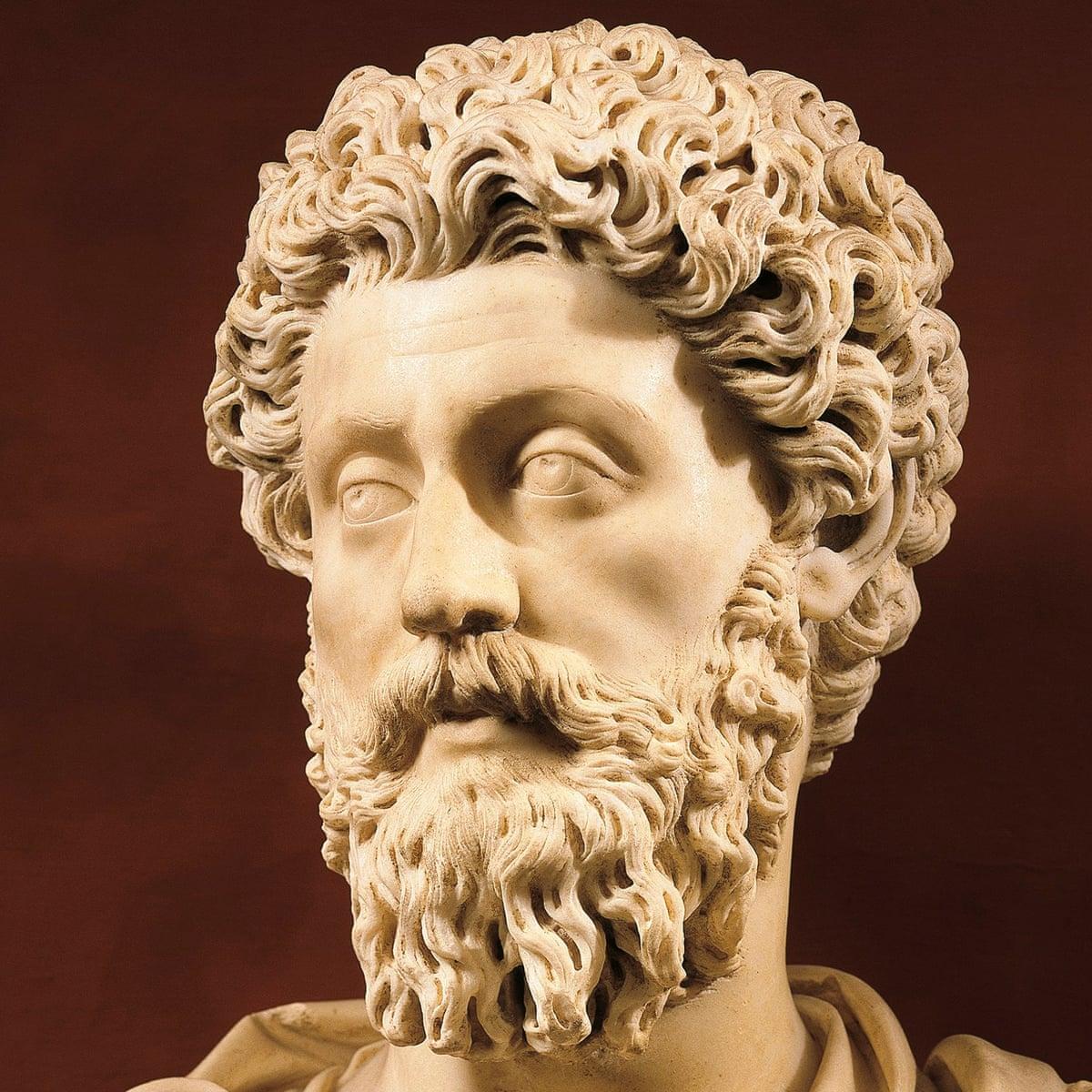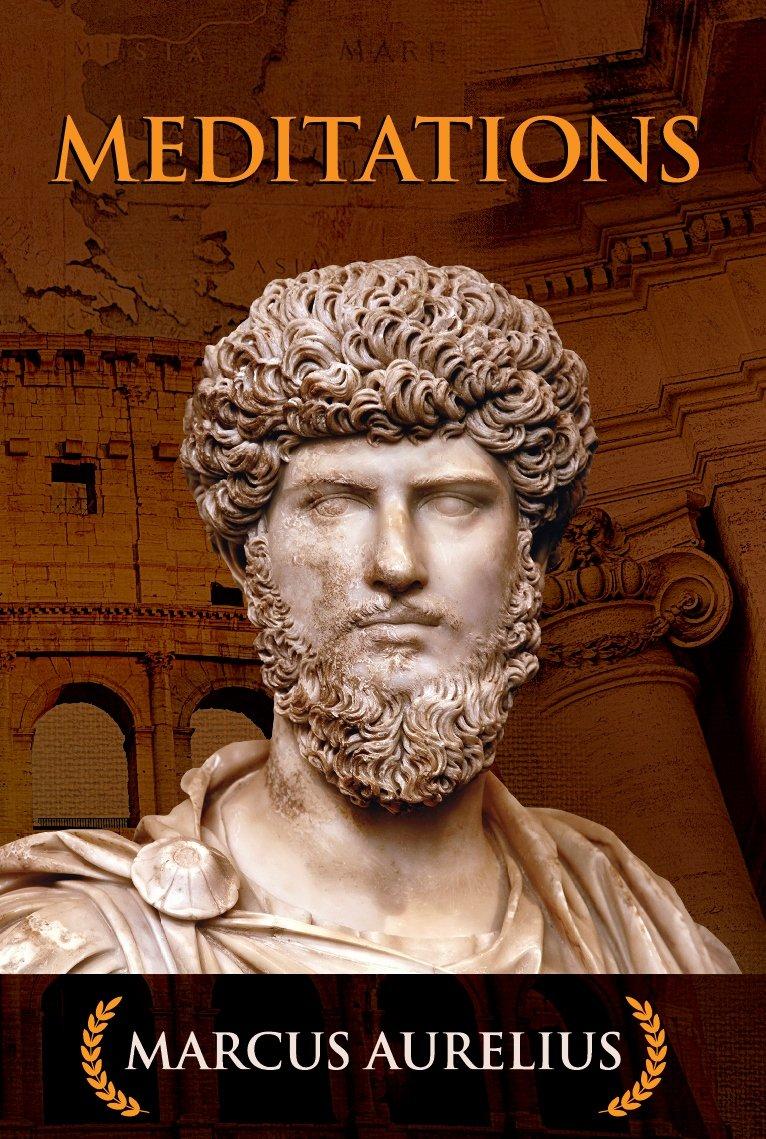Learn more about personaldevelopment with this collection
How to set achievable goals
How to create and stick to a schedule
How to break down large projects into smaller manageable tasks
Marcus Aurelius Antoninus
Marcus was born in AD 121, in the reign of the emperor Hadrian. At first he was Marcus Annius Verus, but his well-born father died young and he was adopted by his grandfather, who had him educated by number of excellent tutors.
When he was sixteen, he was adopted by his uncle by marriage Aurelius Antoninus as Hadrain's heir.
Aurelius Antoninus changed Marcus' name to his own and betrothed him to his daughter, Faustina.
She bore fourteen children, but none of them survived Marcus except the worthless Commodus, who eventually succedded Marcus as Emperor.
89
896 reads
Meditations
Marcus Aurelius' writing known as the Meditations, are unique in classical literature - the personal and the philosophical diary written in Greek by an intellectual Roman Emperor without any thought or intention of publication, and remain of unique interest and relevance to the modern world. To Himself is the better title given in the manuscript used for the first printed edition in 1559.
There are long reflection on duty, virtue, the place of human rationality in univerese, the god within and god without, purposefulness & cohesiveness of the universe, nature of anger, death and regret.
89
739 reads
How could reader of the meditations tell he was a Stoic?
There is no work quite like the Meditations in Greek or Roman philosophical literarture.
Readers who come to this book expecting the hardness and austerity of a Stoic will not be disappointed, but they will be surprised by prose that often read like modern peotry and startled by the vivid illustrations that reveals Marcus' deep appreciation of the beauty and purposefulness of the Nature.
Perhaps the sustained analogy to be encountered is, it made possible by discovery of the intimate and indissouble connection between macrocosm and microcosm, between the providence, rationality of the Whole.
86
632 reads
Meditation Book: 1 Passage: 3
From my mother: piety, generosity, the avoidance of wrong-doing and even the thought of it; also simplicity of living, well clear of habits of the rich.
87
773 reads
Meditation Book: 2 Passage: 8
Failure to read what is happening in another's soul is not easily seen as a cause of unhappiness: but those who fail to attend to the motions of their own soul are necessarily unhappy.
92
696 reads
Meditation Book: 3 Passage: 4
Do not waste the remaining part of your life in thoughts about other people, when you are not thinking with reference to some common good.
Why deprive yourself of the time for some other task? Thinking about what so-and-so is doing and why, what he is saying or plotting, and all that line of thought, makes you stray from the close watch on your own directing mind.
Train yourself to think only thoughts such that 'What is in your mind?' you could say that with immediate frankness, and so your answer give direct evidence that your thoughts are straightforward and kindly.
101
521 reads
Meditation Book: 4 Passage: 26
You have seen that: now look at this. Do not trouble yourself, keep your self simple. Someone does wrong? He does wrong to himself. Has something happened to you? Fine.
All that happens has been fated by the Whole from the beginning and spun for your own destiny. In sum, life is short: make your gain from present moment with right reason and justice. Keep sober and relaxed.
95
484 reads
Meditation Book: 5 Passage: 8.3, 8.4
"Fate brought this on him." So let us accept these prescribtions just as we accept those of Asclepius - many of them too are harsh, but we welcome them in the hope of the health.
You should take the same view of the process and completion of the universal nature as you do of your own health: and so welcome all that happens to you, even if it seems rather cruel, because its purpose leads to health of the universe. He(God) would not bring this on anyone, if it did not also bring advantage to the Whole: no more than any natural principle brings anything appropriate to what it governs.
91
385 reads
Meditation Book: 5 Passage: 8.5
So there are two reasons why you should be content with your experiences: One is that this has happened to you, was prescribed to you, a thread of destiny spun for you by most anicent cause. Second is that what comes to each individual is determining part of the welfare, perfection, and indeed the very coherence of that which governs the Whole.
Because the complete Whole is maimed if you sever even the tinniest fraction of its connection and connectivity: this is true of its constituents parts, and true likewise of its cause.
94
345 reads
Meditation Book: 6 Passage: 21
If somone can prove me wrong and show me my mistake in any thought or action, I shall gladly change. I seek the truth, which never harmed anyone: the harm is to persist in one's own self-deception and ignorance.
100
396 reads
Meditation Book: 7 Passage: 18
Is someone afraid of change? Well, what can ever come to be without change? Or what is dearer or closer to the nature of the Whole than change? Can you yourself take a bath, if the wood that heats it is not changed? Can you be fed, unless what you eat changes? Can any other of the benefits of the life be achieved without change? Do yo not see then that for you to be changed is equal, and equally necessary to the nature of the Whole?
92
315 reads
Meditation Book: 8 Passage: 17
If the choice is yours, why do the thing? But if it is another's choice, why do you blame - atoms or gods? Either is madness. There is no blame. If you can, put him right: if you can't, at the least put the matter itself right. If that too is impossible, what further purpose does blame serve? Nothing should be done without purpose.
89
325 reads
Meditation Book: 9 Passage: 32
You can strip away many unnecessary troubles which lie wholly in your own judgement. And you will immediately make large and wide open room for yourself by grasping the whole universe in your thought, contemplating the eternity of time, and reflecting on the rapid change of each thing in every part - how brief the gap from birth to dissolution, how vast the gulf of time before your birth, and an equal infinity after your dissolution.
89
297 reads
Meditation Book: 10 Passage: 2
Observe what your physical nature requires, as one subject to the condition of mere life. Then do it and welcome it, as long as nature as an animate being will not be impaired. Next, you should observe what your nature as an animate being requires: again, adopt all of this, as long as your nature as rational being will not be impaired. And rational directly implies social. Follow these rules, and no further fuss.
85
274 reads
Meditation Book: 11 Passage: 9
Just as those who try to block your progress along the straight path of the reason will not be able to divert you from principled action, so you must not let them knock you out of your good will towards them. Rather you shold watch yourself equally on both fronts, keepind only a stablity of judgement and action, but also a mild response to those who try to stop you or are otherwise disaffected.
to be angry with them is no less a weaknessthan to abandon yoir course of action and capitulate in panic.
87
274 reads
Meditation Book: 12 Passage: 32
What a tiny part of the boundless abyss of time has been allotted to each of us - and this is soon vanished in eternity; what a tiny part of the universal substance and the universal soul; how tiny in the whole earth the mere clod on which you creep. Reflecting on all this, think nothing important other than active pursuit where your oen nature leads and passive acceptance of what universal nature brings.
87
295 reads
CURATED BY
More like this
Read & Learn
20x Faster
without
deepstash
with
deepstash
with
deepstash
Access to 200,000+ ideas
—
Access to the mobile app
—
Unlimited idea saving & library
—
—
Unlimited history
—
—
Unlimited listening to ideas
—
—
Downloading & offline access
—
—
Personalized recommendations
—
—
Supercharge your mind with one idea per day
Enter your email and spend 1 minute every day to learn something new.
I agree to receive email updates
















